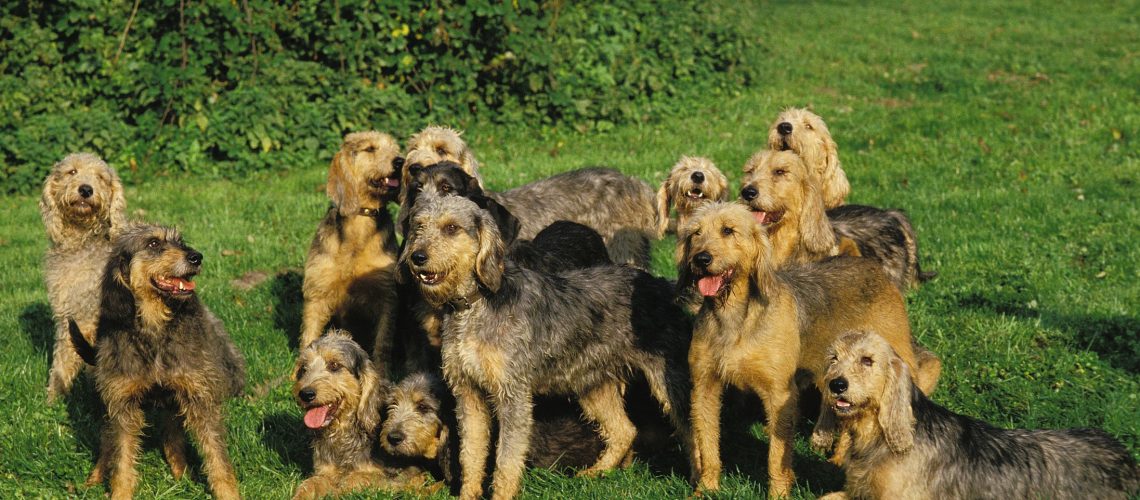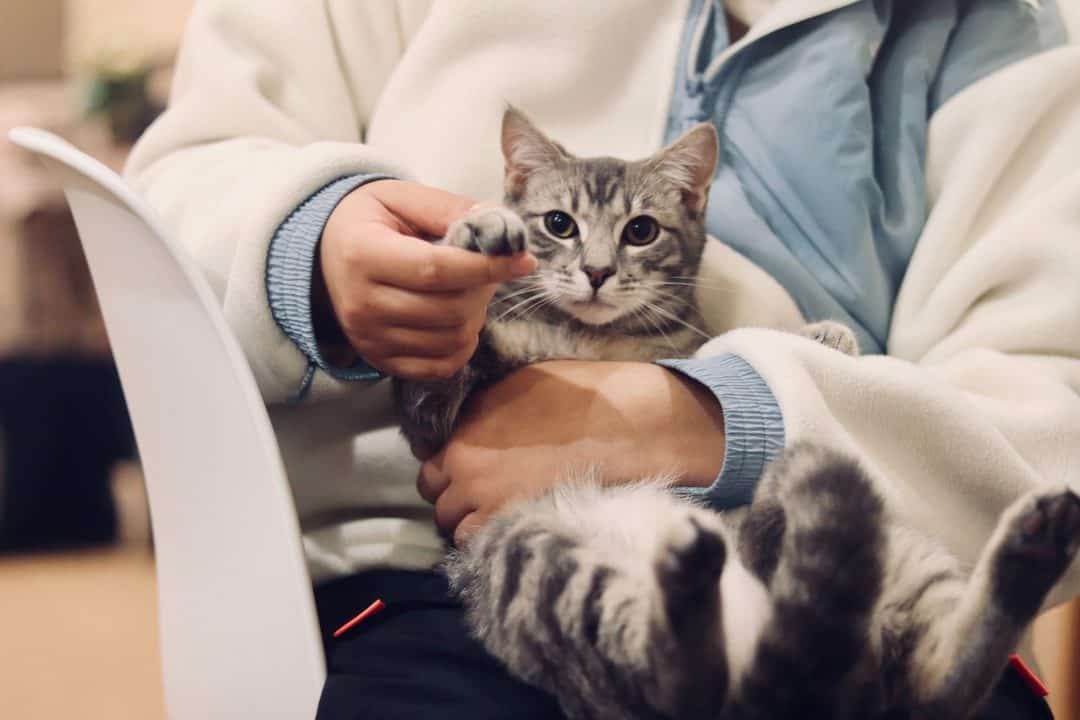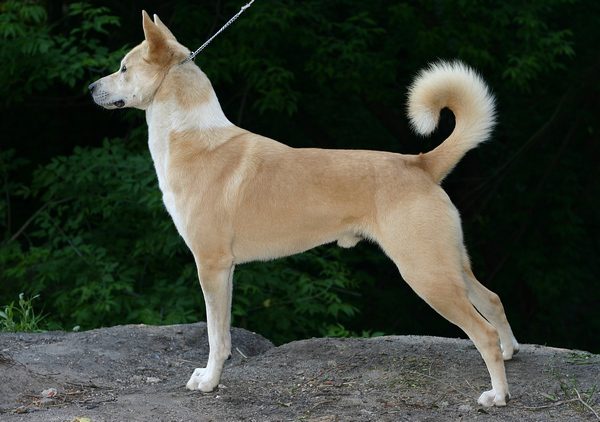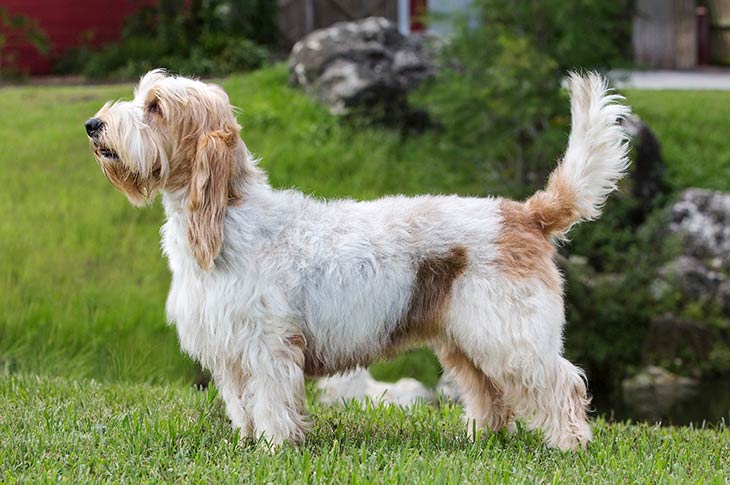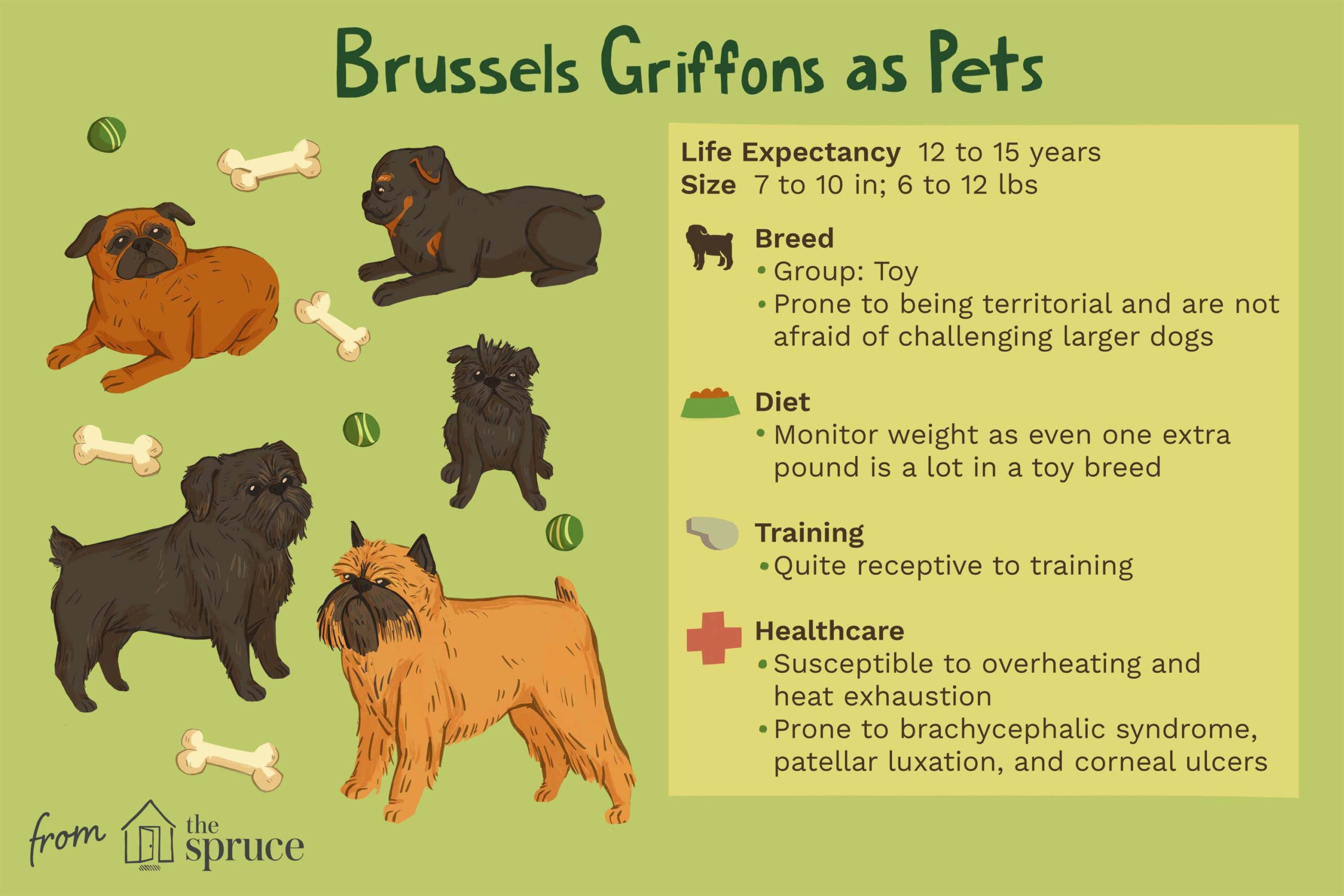Key Takeaways:
- The Griffon Nivernais is a medium-sized hunting dog breed originating from France.
- They are known for their strong and muscular build, with a dense coat that requires regular brushing to prevent matting.
- Griffon Nivernais dogs are intelligent and independent, making them suitable for experienced owners who can provide consistent training and socialization.
- Regular exercise is essential for this breed, as they have high energy levels and thrive in an active environment.
- Proper care includes regular veterinary check-ups, a balanced diet, and providing mental stimulation through activities like puzzle toys or scent work.
Are you ready to embark on an exciting journey into the world of Griffon Nivernais? If you're a dog lover or simply curious about different dog breeds, this topic is perfect for you! Discovering the characteristics and care of the Griffon Nivernais can provide you with valuable knowledge that will not only deepen your understanding of these amazing creatures but also enhance your ability to care for them. Whether you're a proud owner or just considering adding a furry friend to your family, understanding this topic is essential in providing the best possible care for these lovable companions. So, let's dive in and explore the captivating world of Griffon Nivernais together! Get ready to uncover fascinating facts and practical tips that will make you a true expert in no time. Let's get started on this exciting adventure!
What is a Griffon Nivernais? Learn about its characteristics
A Griffon Nivernais is a breed of dog that originated in France. They are medium-sized dogs with a strong and muscular build. The Griffon Nivernais has a distinctive appearance, with a long and slightly arched neck, a broad head, and expressive eyes. They have a rough and wiry coat that comes in various colors such as black, gray, or fawn.
This breed is known for its hunting abilities and has a keen sense of smell. They were originally bred to hunt wild boar and other game in the Nivernais region of France. The Griffon Nivernais is an intelligent and independent dog that requires consistent training and socialization from an early age.
Physical Characteristics:
- Medium-sized
- Strong and muscular build
- Long and slightly arched neck
- Broad head
- Expressive eyes
- Rough and wiry coat
- Comes in various colors such as black, gray, or fawn
Fun Fact:
The Griffon Nivernais is named after the region of Nivernais in France where it was developed. "Griffon" refers to their rough coat, while "Nivernais" indicates their place of origin.
How does a Griffon Nivernais behave with children and other pets?
The Griffon Nivernais is known to be friendly and affectionate towards children when properly socialized. They can make great family pets but should always be supervised around young children due to their energetic nature. It's important to teach children how to interact with the dog in a gentle and respectful manner.
When it comes to other pets, the Griffon Nivernais can generally get along well with them if introduced properly. Early socialization and training are key to ensure they learn to coexist peacefully with other animals. However, it's important to note that the Griffon Nivernais has a strong prey drive due to its hunting background, so caution should be exercised when introducing them to small animals such as cats or rabbits.
Behavior with Children:
- Friendly and affectionate
- Requires supervision around young children
- Teach children how to interact gently
Behavior with Other Pets:
- Can get along well if introduced properly
- Early socialization and training are important
- Caution needed around small animals due to prey drive
Tips for Introducing a Griffon Nivernais to Other Pets:
- Start with gradual introductions in a neutral territory.
- Provide positive reinforcement and rewards for calm behavior.
- Supervise interactions until you are confident in their compatibility.
- Seek professional help if any issues arise during the introduction process.
How much exercise does a Griffon Nivernais need?
The Griffon Nivernais is an active breed that requires regular exercise to stay healthy and happy. They have high energy levels and enjoy activities that challenge both their physical and mental abilities. Daily exercise should include a mix of brisk walks, jogging, playtime, and interactive games.
It is recommended to provide the Griffon Nivernais with at least 60 minutes of exercise each day. This can be divided into multiple sessions to keep them engaged and prevent boredom. Without sufficient exercise, they may become restless and exhibit destructive behavior.
Exercise Needs:
- Active breed with high energy levels
- Requires at least 60 minutes of exercise per day
- Mix of brisk walks, jogging, playtime, and interactive games
Tips for Exercising a Griffon Nivernais:
- Create a consistent exercise routine.
- Vary activities to keep them mentally stimulated.
- Provide challenging toys or puzzles for mental stimulation.
- Consider enrolling in obedience or agility classes for additional exercise and training opportunities.
Grooming tips for keeping a Griffon Nivernais' coat healthy
The Griffon Nivernais has a rough and wiry coat that requires regular grooming to keep it healthy and free from mats or tangles. Brushing their coat at least once a week helps remove loose hair and prevents matting. Additionally, hand-stripping or plucking the dead hairs twice a year helps maintain the texture of their coat.
Bathing should be done on an as-needed basis using a dog-specific shampoo that won't strip the natural oils from their skin. It's important to regularly check their ears for any signs of infection or wax buildup and clean them gently with a veterinarian-recommended ear cleaner if necessary.
Grooming Needs:
- Brush their coat at least once a week
- Hand-stripping or plucking dead hairs twice a year
- Bathe as needed with a dog-specific shampoo
- Regularly check and clean their ears
Tips for Grooming a Griffon Nivernais:
- Use a slicker brush or comb to remove loose hair and prevent matting.
- Consult with a professional groomer for hand-stripping techniques.
- Trim their nails regularly to avoid overgrowth or discomfort.
- Introduce grooming activities gradually and make them a positive experience with rewards and praise.
Common health issues in Griffon Nivernais dogs
The Griffon Nivernais is generally a healthy breed, but like all dogs, they are prone to certain health issues. It's important for owners to be aware of these potential problems and take preventive measures. Some common health issues that can affect Griffon Nivernais dogs include:
Common Health Issues:
- Hip dysplasia: A condition where the hip joint doesn't develop properly, causing pain and mobility issues.
- Epilepsy: A neurological disorder characterized by recurrent seizures.
- Bloat: A serious condition where the stomach becomes distended with gas or fluid, which can be life-threatening if not treated promptly.
To minimize the risk of these health issues, it's recommended to choose a reputable breeder who conducts health screenings on their breeding dogs. Regular veterinary check-ups, a balanced diet, and maintaining a healthy weight are also important for the overall well-being of a Griffon Nivernais.
Tips for Preventive Health Care:
- Choose a reputable breeder who conducts health screenings on their dogs.
- Schedule regular veterinary check-ups to monitor their health.
- Feed them a balanced diet appropriate for their age and activity level.
- Maintain a healthy weight through portion control and regular exercise.
Diet recommendations for a healthy Griffon Nivernais
A nutritious diet is essential for maintaining the health and vitality of a Griffon Nivernais. Feeding them high-quality dog food that is specifically formulated for their age, size, and activity level is recommended. It's important to provide them with a balanced diet that includes protein, carbohydrates, fats, vitamins, and minerals.
The daily food portions should be divided into two meals to prevent overeating or digestive issues. Avoid feeding them table scraps or excessive treats as it can lead to obesity or nutritional imbalances. Fresh water should always be available to keep them hydrated throughout the day.
Diet Recommendations:
- Feed high-quality dog food formulated for their specific needs
- Provide a balanced diet with protein, carbohydrates, fats, vitamins, and minerals
- Divide daily food portions into two meals
- Avoid table scraps and excessive treats
Tips for Feeding a Griffon Nivernais:
- Consult with your veterinarian to determine the appropriate type and amount of food for your dog.
- Monitor their weight and adjust the portion sizes accordingly.
- Choose food with high-quality ingredients and avoid fillers or artificial additives.
- Consider feeding them a combination of dry kibble and wet food for added variety and moisture.
Tips for ensuring the well-being and happiness of your Griffon Nivernais
To ensure the well-being and happiness of your Griffon Nivernais, it's important to meet their physical, mental, and emotional needs. Here are some tips to keep in mind:
Physical Well-being:
- Provide regular exercise to keep them physically fit.
- Ensure they have a balanced diet to maintain good health.
- Schedule routine veterinary check-ups for preventive care.
Mental Stimulation:
- Engage them in interactive games or puzzle toys to challenge their minds.
- Teach them new commands or tricks to keep their brains active.
- Vary their environment by taking them on different routes during walks or outings.
Emotional Well-being:
- Provide plenty of socialization opportunities with other dogs and people from an early age.
- Give them attention, affection, and positive reinforcement for good behavior.
- Create a safe and comfortable space for them at home where they can relax and feel secure.
By meeting these needs, you can help ensure that your Griffon Nivernais leads a happy and fulfilling life as part of your family.
Tips for a Happy Griffon Nivernais:
- Make time for daily play and exercise sessions.
- Rotate their toys regularly to keep them engaged.
- Provide them with a comfortable bed or crate for restful sleep.
- Show them love and affection through cuddles, petting, and praise.
In conclusion, the Griffon Nivernais is a loyal and intelligent dog breed that requires regular exercise and grooming. With proper care and attention, they can make wonderful companions for families and individuals alike.
What issues do Griffon dogs have?
Griffs are typically in good health, and reputable breeders make sure to test their dogs for potential health issues like heart problems, eye defects like cataracts, and orthopedic issues such as patella luxation and hip dysplasia.
Is a Griffon a good family dog?
Absolutely. Brussels Griffons generally thrive in households with kids, other dogs, or cats. However, due to their sensitivity, it is advisable to supervise interactions between them and very young children.
What is a Griffon Nivernais in English?
The Griffon Nivernais is a scent hound breed of dog that comes from France. It is a flexible hunting dog that can be used for both small and large game, either in packs or on its own. The current breed is a recreation of a historical type of dog from the Nivernais area.
Are Griffons aggressive?
While Griffons generally don't show aggression towards strangers, it is not impossible for them to do so if they haven't been properly socialized. They are extremely loyal to their family and prefer to stay near them at all times. Additionally, Griffons are intelligent and respond well to training.
Do griffon dogs bark?
Due to their small size, they are not effective guard dogs but are great as watchdogs. Without proper training, they may bark excessively. They can exhibit aggression if they feel threatened by strangers or other dogs, and they are fearless, regardless of their size.
How often do you bathe a Griffon?
For dogs with wire or broken coats such as Scottish Terriers, Brussels Griffons, or Affenpinschers, it is recommended to bathe them every 6-8 weeks. Due to the rough texture of their hair, grooming these dogs can be more challenging and time-consuming.



